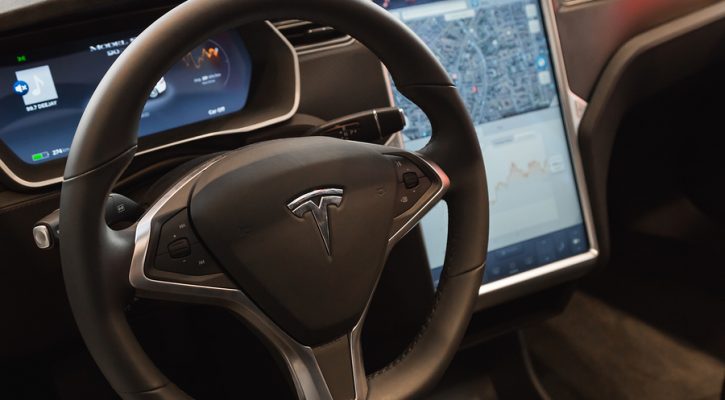
Tesla Autopilot Car Crash Kills Driver
July 5, 2016
In the first crash of its kind, a Tesla automobile with its “Autopilot” engaged was involved in a crash that killed its owner. According to Tesla, “this is the first known fatality in just over 130 million miles where Autopilot was activated.” While there are a lot of lessons to be taken from this crash, the first lesson to know and understand is that, in spite of the name, the Autopilot system does not make the Tesla an autonomous, self-driving car.
While the news about the crash was just released last week, the crash actually happened on May 7, 2016. The Tesla was nearing an intersection as a tractor-trailer was making a left turn. The Tesla failed to stop and drove under the trailer with the windshield impacting the bottom part of the trailer. Tesla engineers feel that the Autopilot’s brakes failed to engage because the camera failed to distinguish between the bright sky and the large white side of the trailer. Adding to the problem, the trailer’s height may have fooled the camera into believing the road was clear ahead.
The Tesla camera’s inability to distinguish white paint from a clear blue sky poses a major problem. The camera is a black and white camera that can only distinguish between black, white, and various shades of gray. It has been suggested that, if the system had used Lidar (laser based radar) instead, the colors wouldn’t have mattered.
Tesla’s Autopilot system is actually a “driver-assist” system that includes, among other things, an active cruise control that maintains the posted speed limit and automatically applies the brakes when it gets too close to a vehicle ahead. The cruise control uses data from on-board cameras and road maps to maintain position and speed. There’s also a lane departure system that automatically keeps the car within its lane as long as the cameras can detect lane marking lines. The vehicle also has the ability to automatically parallel park.
Even when working together, these systems don’t make the vehicle truly autonomous or self-driving. In fact, the vehicle is set to manual driving by default and, when the Autopilot system is engaged, the driver has to acknowledge a message that says the Autopilot is an assist program and drivers must keep their hands on the wheel at all times.
There is evidence that the driver of this vehicle hadn’t been paying attention to the road and may, instead, have been watching a movie. If he had been paying attention and kept his hands on the wheel, he should have been able to stop the car in plenty of time to avoid the collision.
The name “Autopilot” may have fooled a lot of drivers and there are many examples on Youtube of Tesla drivers treating the Autopilot system as if it were a self-driving system. One Youtube video shows a Tesla driver asleep at the wheel in stop-and-go traffic.
Several vehicle manufacturers such BMW, Mercedes, and GM offer similar driver-assist features as an option in their higher end vehicles but it’s going to be a very long time before the systems are improved and tested enough to be considered fully autonomous. For now, these systems provide added safety but they still aren’t equal to the best safety feature of all; a driver who’s paying attention to the road ahead.
For more information, visit: A Tragic Loss
